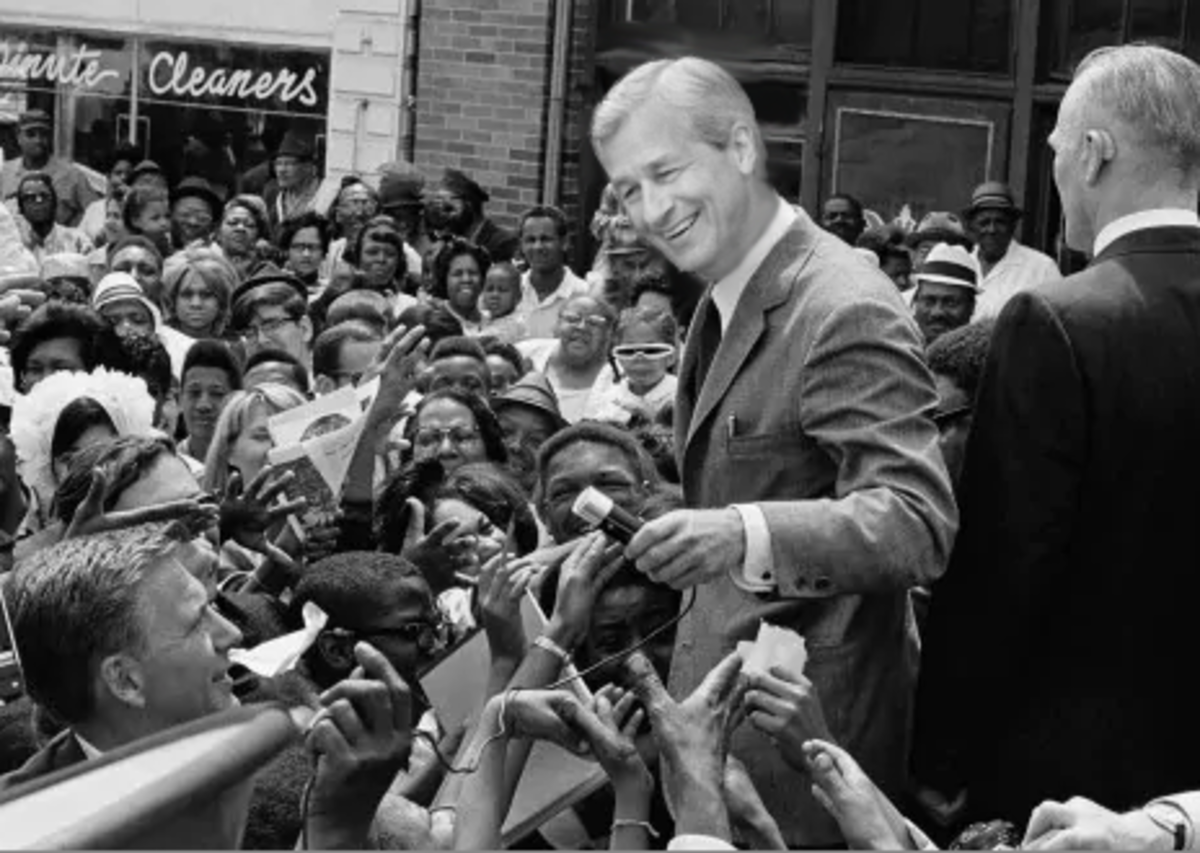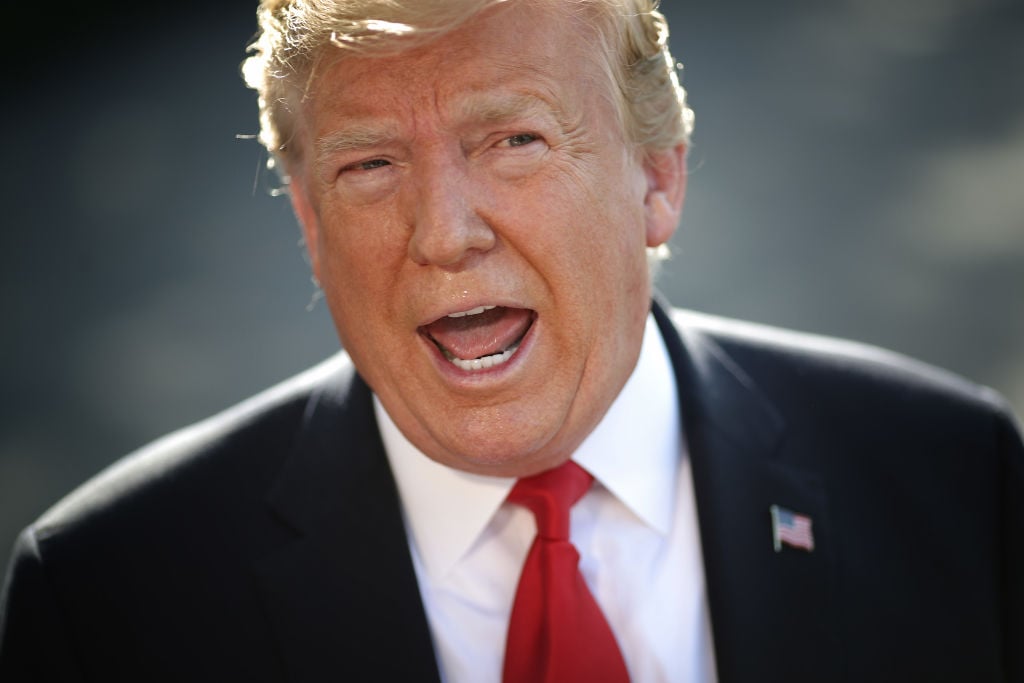Justice Sonia Sotomayor (Photo by Allison Shelley/Getty Images)
Is there anything that Justice Sonia Sotomayor can’t do? Raised by a single mother in a Bronx housing project, she graduated from Princeton (summa cum laude) and Yale Law School, worked as a prosecutor in the legendary Manhattan District Attorney’s Office, and served on two of the nation’s most prestigious courts (the Southern District of New York and the Second Circuit) — all on her way to becoming the Supreme Court’s first Latina justice.
Her talents as a writer go beyond judicial opinions. In 2013, she published a bestselling, critically acclaimed memoir, My Beloved World. Earlier this year, she published a bestselling, critically acclaimed children’s book, Just Ask! Be Different, Be Brave, Be You.
Given her tremendous professional success, Justice Sonia Sotomayor is an excellent source of career advice. Even when she’s not providing tips for professional success per se, we can learn so much from her — as I did this past weekend, when I returned to Yale Law School for my 20th law school reunion and had the chance to hear her speak.
On Saturday afternoon, Justice Sotomayor, a member of the YLS class of 1979, sat for a public interview with Dean Heather Gerken (a trailblazer in her own right, as the law school’s first female dean). Actually, “sat” isn’t the right verb; Justice Sotomayor likes to walk, so the two conducted much of their conversation while ambling about the auditorium Oprah-style, wearing lavalier microphones.
Their free-ranging discussion was frank, fascinating, and funny — and it felt quite relaxed, even though it took place in the vast and formal space of Woolsey Hall, before an audience of more than 1,500. Justice Sotomayor and Dean Gerken didn’t set out to provide career advice — but their conversation inspired within me the following four tips for professional success.
1. If you don’t understand, just ask.
Why did Justice Sotomayor give her children’s book the title Just Ask? Here’s how she explained it to NPR (an explanation she shared with the YLS audience):
Supreme Court Justice Sonia Sotomayor was diagnosed with Type 1 diabetes early in life, and ever since has given herself insulin shots before she eats, to help manage her blood sugar levels. No big deal. But some years ago, she had an upsetting experience at a restaurant.
She was in the restaurant bathroom, just finishing up her injection, when another woman walked in. They both returned to their dinners, but as Sotomayor left the restaurant, she heard the woman from the restroom [tell her dining companions]: “She’s a drug addict.”
Sotomayor stopped, turned around, and said: “Madam, I am not a drug addict. I am diabetic, and that injection you saw me give to myself is insulin. It’s the medicine that keeps me alive. If you don’t know why someone’s doing something, just ask them. Don’t assume the worst in people.”
The justice’s book, Just Ask, explains a dozen different challenges faced by children — including diabetes, dyslexia, and asthma — so kids can learn to understand and celebrate, rather than fear or hide, what makes them different.
“Just ask”: Wise advice for kids and for life, but applicable to adults and careers as well. Young lawyers — for example, junior associates at law firms, or law clerks to judges — frequently make the mistake of not asking enough questions. As a partner or judge explains how they’d like something done, the young lawyer, not wanting to appear ignorant, doesn’t ask questions to clarify what’s unclear. The resulting confusion then causes the young lawyer to waste a lot of time, make mistakes in the project, or both.
As explained by another legal luminary, former Manhattan U.S. Attorney Preet Bharara, in his own bestseller, Doing Justice, asking questions is how we learn and grow. So don’t be afraid to ask “dumb” questions; the answers might surprise you.
2. Keep yourself open to possibility.
I’ve written about this before, but it bears repeating. In telling the story of her amazing career, Justice Sotomayor offered an excellent example of the role that chance plays in our professional lives — and how we must be ready to seize the chances offered to us.
As a 3L at YLS, Sonia Sotomayor did not have a job lined up for after graduation, and she was trying to figure out what to do. Walking down the main hallway of the law school one day, she spied some delicious cheese plates inside a classroom — refreshments for a panel discussion and reception about public service careers. Overhearing that the last speaker was being introduced, she saw an opportunity to enjoy some free cheese and snuck into the back of the classroom.
That speaker was none other than Bob Morgenthau, at the time the Manhattan District Attorney. In his remarks, he told the students, “If you come to my office, you’ll have more responsibility at age 25 than any of your classmates.” That pitch appealed to the young Sotomayor.
When she spoke with Morgenthau at the reception afterwards, he urged her to apply. She did, she got the job, and she embarked upon a successful career in public and government service. The rest is history — and it all started with some plates of cheese.
3. Prepare, prepare, prepare — but be prepared to pivot if necessary.
When she was a young prosecutor in the Manhattan DA’s office, her senior colleagues repeatedly emphasized the importance of preparation. The best trial lawyers think about every possible eventuality and prepare accordingly.
But even the best-laid plans often go awry. You might have prepared a beautiful presentation as a prosecutor, but trials are unpredictable things — and in just a few minutes, a single witness can blow up your entire case. And when that happens, you need to adapt.
The same goes for your career. You pick a practice area based on extensive research — but when you actually start working in it, you discover it’s not what you expected. You select a firm after ample due diligence — but two years in, you get laid off.
When these unfortunate surprises happen, ruining your carefully constructed plans, you can’t just curl up into the fetal position and cry. You need to regroup, figure out another path, and move forward.
4. If you’re unhappy in your job, then do something about it.
People don’t like to admit when they’re wrong — and this is especially true of lawyers. But as Justice Sotomayor told the YLS audience, “Don’t be afraid to say, ‘I’ve made a mistake.’”
In the career context, she explained, this failure to acknowledge error often leads lawyers to stay too long in jobs they don’t enjoy. But it doesn’t have to be this way.
“Take chances,” the justice said. “As a talented lawyer, you can change paths at any time.”
Disclosure: All links to books in this post are affiliate links.
Earlier:
 David Lat, the founding editor of Above the Law, is a writer, speaker, and legal recruiter at Lateral Link, where he is a managing director in the New York office. David’s book, Supreme Ambitions: A Novel (2014), was described by the New York Times as “the most buzzed-about novel of the year” among legal elites. David previously worked as a federal prosecutor, a litigation associate at Wachtell Lipton, and a law clerk to Judge Diarmuid F. O’Scannlain of the U.S. Court of Appeals for the Ninth Circuit. You can connect with David on Twitter (@DavidLat), LinkedIn, and Facebook, and you can reach him by email at dlat@laterallink.com.
David Lat, the founding editor of Above the Law, is a writer, speaker, and legal recruiter at Lateral Link, where he is a managing director in the New York office. David’s book, Supreme Ambitions: A Novel (2014), was described by the New York Times as “the most buzzed-about novel of the year” among legal elites. David previously worked as a federal prosecutor, a litigation associate at Wachtell Lipton, and a law clerk to Judge Diarmuid F. O’Scannlain of the U.S. Court of Appeals for the Ninth Circuit. You can connect with David on Twitter (@DavidLat), LinkedIn, and Facebook, and you can reach him by email at dlat@laterallink.com.









 Jordan Rothman is a partner of
Jordan Rothman is a partner of 








 Olga V. Mack is the CEO of
Olga V. Mack is the CEO of